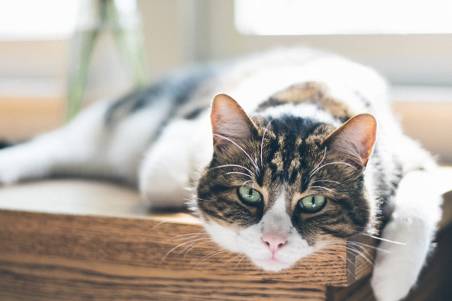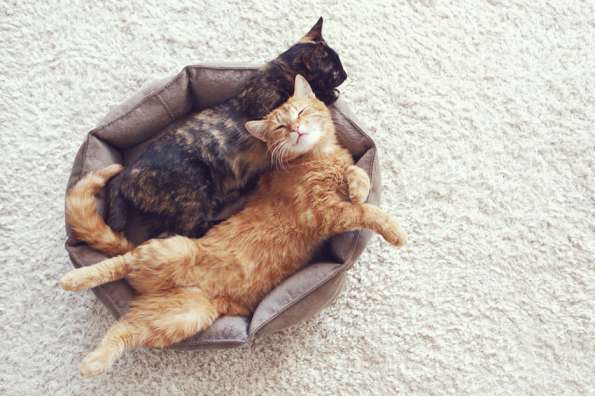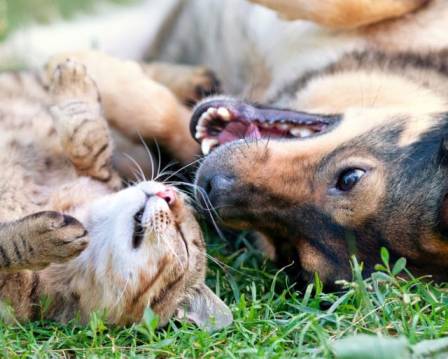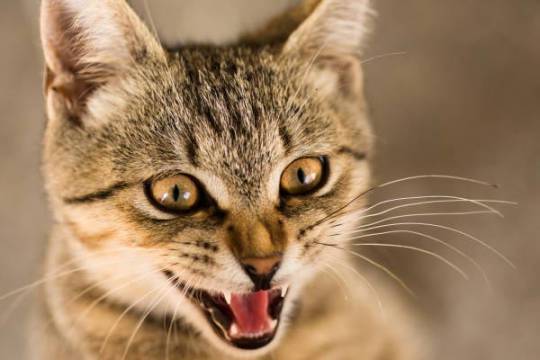Connect with a verified veterinarian in minutes. Licensed vets are available 24/7 to answer your questions. No need to worry about your furry family member.
Pet pals give happiness in the household. However, taking care of their health once they grow old is one of your primary responsibilities. Cats may develop illnesses as they grow into their old age. Most commonly seen signs reveal if they have any progressive or deadly diseases.
If you can identify the type of sickness, you can probably treat it before it’s too late. However, the guide below will throw some light on commonly seen illnesses in senior cats.
1. Diabetes
Feeding your furry friends a treat or two every day might bring you happiness. But, cats can gain weight quickly and end up having diabetes. Older cats are prone to this sickness and lead to a troubled lifestyle if left untreated.
The best method of treatment would be timely insulin injections. Additionally, cats can also bounce back if done promptly. Otherwise, the chances of your cat staying on insulin injections might be for life.
Feline-friendly foods can help sustain a healthy life and make them active. You can mimic the food they get in the wild with less carb and more protein.
2. Arthritis
A lot of similarities between aging symptoms and arthritis confuses cat owners. The use of their muscles and limbs may become a problem in daily activities. For example, senior cats affected by arthritis avoid climbing tall places due to their restrictions in movement.
Obesity in cats is a cause of arthritis. Once their weight increases, excessive pressure on joints develops this illness. Your cat might continue peeing outside the litter box, and stiffness after standing up are some of the common symptoms of arthritis. Take a trip to your vet to confirm the diagnosis.

Review symptoms, medications & behavior to keep your pets healthy with a Vet Online in just minutes.
Ask a Vet Live Now3. Heart Disease
Cardiomyopathy is a common heart disease seen in older cats. Other types of valvular heart problems also strike them. However, all these types of heart sicknesses left ignored can lead to fatal congestive heart failure. As aging occurs slowly in cats, finding out the symptoms is a tough job.
Most of the signs that depict this illness are irregular breathing, abnormalities in heart sounds, decreased appetite, paralysis, and discoloration in the foot.
If you find any troubling signs, take a trip to your vet immediately. When diagnosed early, heart diseases are treatable. Also, frequent check-ups, once they begin aging, is the best way for prevention.
4. Chronic Kidney Ailment
Kidneys help dispose of the waste after digestion. Therefore, any problem in renal functioning will lead to waste accumulation in the bloodstream of senior cats.
It further leads to a phenomenon known as Azotemia. Higher thirst, increased urine load, sudden weight loss, lack of appetite, and vomiting are the regularly seen symptoms in chronic kidney ailment.
Prevention is the best way to delay or stop your cat from suffering from Kidney related illnesses. Keeping them hydrated with enough wet food and clean water is the key here. Make sure your cat drinks enough water from bowls or water fountains to keep its kidneys functioning well.
5. Cancer
Cancer is a disease that does not have adequate treatment plans. Moreover, senior cats also suffer from cancer, leading to consequences depending on the type of cancer. Pet owners can keep their cats away from chemicals, synthetic materials in their surroundings, and a smokeless environment.
Also, giving a nutrient-rich diet like wet foods helps in overall healthy growth too. Most of the cancer types are also genetic. Hence, you do not have much hold once your cat suffers from cancer. Look for disturbing symptoms and approach a vet for clarification.
6. Gastrointestinal Illness
Many senior cats suffer from gastrointestinal illnesses. These ailments might happen due to several reasons, ranging from stress to a change in diet. As a senior cat’s body is quite sensitive, you may see symptoms such as:
- Vomiting
- Diarrhea
- Stomach ache
- Constipation
- Fever
- Dehydration
As the name suggests, Gastrointestinal illnesses attack your senior cat’s stomach and intestinal area. So, if you suspect your senior cat has a sensitive stomach, feed them light food that is excellent for healthy muscle development.
7. Dental Illness
Dental issues are one of the most common problems in senior cats. Once they develop problems in their mouth, cavity, gums, and teeth, their appetite reduces, leading to weight loss and lack of energy.
Pain and discomfort during eating are common symptoms noticed in dental diseases in older cats. Plaque and tartar buildup due to improper cleaning are problems resulting from dental sickness.
Timely and regular brushing every day helps keep the sicknesses involving dental hygiene at bay. Also, make sure to take frequent trips to your vet to have thorough dental checkups at least twice a year.
8. Hyperthyroidism
When the levels of thyroid hormone go overboard, your cat suffers from hyperthyroidism. Unfortunately, preventing this disease is not easy.
Also, the common symptoms seen in the case of hyperthyroidism include:
- Increased thirst
- Frequent urination with more volume
- Weight loss despite eating more
- Vomiting
- Diarrhea
When this condition is left unnoticed, your cats can suffer from hypertension, heart or kidney failure. In addition, a blood culture will confirm the presence of hyperthyroidism in your pet.
End Note
Senior cats are prone to many diseases mentioned above. Also, cats experience multiple illnesses at the same time. If you detect any symptoms that are concerning, take your cat to the veterinarian immediately.
You can rule out or devise the next steps for treatment in case of any diagnosis. I hope this guide will help pet owners understand the vulnerable diseases in older cats!
Connect with a verified veterinarian in minutes. Licensed vets are available 24/7 to answer your questions. No need to worry about your furry family member.

Tom
Tom has always loved to write since he was little - he wanted to be either a writer or a veterinary doctor, but he ended up being a professional writer while most of his works are based on animals. He was born in San Francisco but later moved to Texas to continue his job as a writer. He graduated from the University of San Francisco where he studied biotechnology. He is happily married and a soon to be father!
Review symptoms, medications & behavior to keep your pets healthy with a Vet Online in just minutes.
Ask a Vet Live Now




